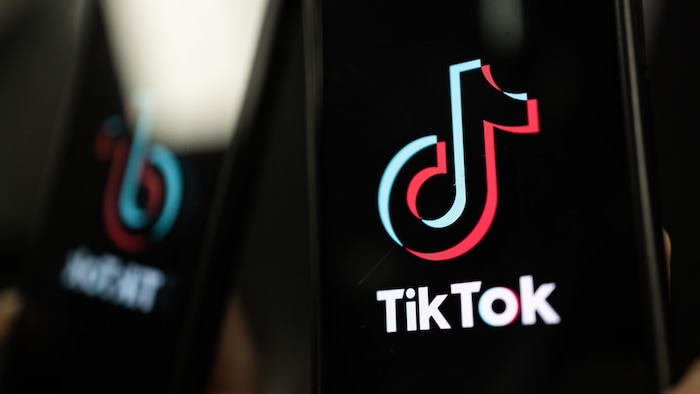Open full screen TikTok is a wholly owned subsidiary of Chinese technology company ByteDance. The Canadian Press The federal government ordered a “national security review” of the popular video app TikTok last September, but has not disclosed it publicly. In the office of the Minister of Industry, François-Philippe Champagne, it is indicated that the file is still active and that he cannot comment further due to the confidentiality provisions of the Law on Investment Canada. The minister's office assures that the government has never hesitated to take measures, when necessary, if it turns out that a matter currently being examined infringes to Canada's national security. This revelation comes after the House of Representatives passed a bill on Wednesday that would ban the TikTok platform in the United States. United, unless its China-based owner sells his stake in the company.
François-Philippe Champagne, Minister of Industry (Archive photo)
Canada-China Relations
Consult the complete file
Canada-China Relations
View full file
FollowFollow
When asked if the Canadian government would consider a measure similar to the US bill, Minister Champagne's office responded that the Liberal cabinet had already issued an order for the national security review of TikTok Canada on September 6.
The minister's office indicated that this review was based on the expansion of a business, the creation of a new Canadian entity. Minister Champagne's office declined to provide further details on this expansion. His office said the Cabinet order was not available online, as is usual, because the information is protected and confidential under the Investment Canada Act. p>
The executive order provided that TikTok would be subject to increased scrutiny under the law as part of a new policy on foreign investment in the sector interactive digital media, published by the government at the beginning of March.
This policy statement recognizes that certain state-sponsored or state-influenced hostile actors may seek to leverage foreign investment in the interactive digital media sector in order to spread disinformation or manipulate information in a manner that harms undermining Canada's national security.
The Canadian government banned the use of the TikTok app on all mobile devices in the state in February 2023, after federal and provincial privacy commissioners launched their own investigation into the platform. Several provincial governments, including that of Quebec, quickly followed suit.
The Canadian exam decreed in September is not linked to the proposed US bill, which is driven by concerns that the company's current ownership structure poses a threat to national security.
In the United States, demonstrators appeared in front of the Capitol to denounce the bill banning TikTok, on March 13, 2024.
TikTok is a subsidiary wholly owned by Chinese technology company ByteDance. U.S. lawmakers say ByteDance is beholden to the Chinese government, which could demand access to TikTok's U.S. consumer data, given Chinese national security laws that require organizations to help gather intelligence.
The House bill still needs to pass the Senate, where lawmakers have indicated it will face increased scrutiny. US President Joe Biden said that if Congress passes the measure, he would ratify it.
Nearly 30% of Canadian respondents to an October 2022 survey by Toronto Metropolitan University said they use TikTok.
For many Canadian content creators on TikTok, the American market is essential, said Scott Benzie, director of the organization Digital First Canada, which advocates for digital creators and which has already received funding from TikTok.
If a ban does go through in the United States, Canadian careers on TikTok will be over.
A quote from Scott Benzie, director of Digital First Canada
For content creators who make money through sponsorships, obviously, most of these brands want access to American audiences – and if not more possible, then that money disappears.
But Nathan Kennedy, a personal finance content creator from Hamilton, Ontario, isn't too worried about it just yet, noting that threats of banning TikTok have been looming for years.
TikTok is its largest platform and the majority of its audience is in the United States. He finds it hard to believe that a ban would actually happen and force TikTok out of the United States. But if the hypothetical worst-case scenario were to occur, Mr. Kennedy would turn to other platforms.
People will still watch content, it's not going to change. It's where they look at their content that could change over time, he said. I don't want to sound carefree, but these are the kinds of things we have to accept […] in other words, we have to go where the place is. #x27;audience.

